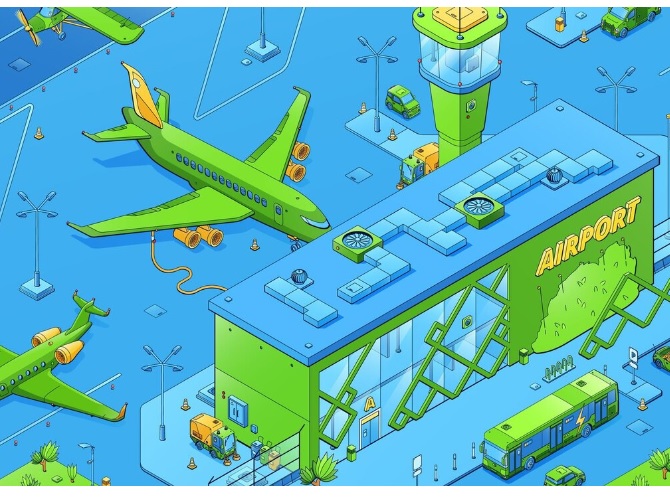International Airlines Group (IAG) and Microsoft are ramping up their collaboration to cut lifecycle carbon emissions in the aviation sector by extending their joint purchase agreement for Sustainable Aviation Fuel (SAF) through 2028. Under the terms of this extended agreement, Microsoft will provide funding for an additional 39,000 tonnes of SAF, which is expected to lower lifecycle carbon emissions by approximately 113,000 tonnes. This agreement, which allows Microsoft to address its Scope 3 emissions, stands as the largest and longest such agreement between a corporation and an airline, based on publicly available data.
Scope 3 emissions refer to indirect carbon emissions, which occur across a company’s value chain rather than from its direct operations. Through its partnership with corporate customers like Microsoft, IAG is able to increase its SAF purchases, thus reducing its direct (Scope 1) emissions. Meanwhile, corporate partners benefit from reductions in their own Scope 3 emissions, proportional to their business travel activities. Microsoft’s contributions also extend to the SAF used by IAG’s airlines to transport data centre components across the globe in cooperation with Microsoft’s freight partners. This collaborative effort in SAF co-funding is part of IAG’s broader strategy to reduce lifecycle emissions.
Jonathon Counsell, Group Sustainability Officer at IAG, expressed his enthusiasm for the partnership, saying, “We are excited to join forces with organizations like Microsoft to advance our work in reducing aviation’s lifecycle emissions. Long-term commitments like these are crucial in driving investments into SAF production, which IAG is actively supporting through our involvement in global SAF initiatives, such as our work with LanzaJet.”
Julia Fidler, Lead for Environmental Sustainability, Fuel and Materials Decarbonization at Microsoft, commented on the expanded agreement, saying, “By extending our SAF purchase deal with IAG, we are making significant strides toward our goal of becoming carbon negative by 2030. This multi-year commitment not only brings us closer to our sustainability targets but also helps drive the production of more SAF, a critical step in reducing aviation emissions. We are excited to collaborate with IAG to expand SAF demand and availability.”
Sustainable Aviation Fuel offers a more environmentally friendly alternative to traditional jet fuels, as it recycles carbon that is already in circulation rather than introducing new carbon emissions from fossil fuels. By the end of 2024, IAG plans to use SAF for 1.9% of its total fuel consumption, with a total investment of over $3.5 billion, which includes commitments to future SAF purchases. IAG is also advocating for stronger government support to accelerate the development of new SAF production technologies.
The SAF sourced under the IAG-Microsoft partnership will be produced from used cooking oil and food waste at Phillips 66’s Humberside refinery, and from sustainably sourced bioethanol at Freedom Pines Fuels, a facility operated by LanzaJet in Georgia, USA. Both sources are certified by the International Sustainability & Carbon Certification (ISCC).
The Microsoft Climate Innovation Fund, which has invested $1 billion in climate technologies, has previously provided funding to LanzaJet. The company’s Freedom Pines facility is the world’s first commercial-scale alcohol-to-jet production site, which will supply SAF to British Airways.





